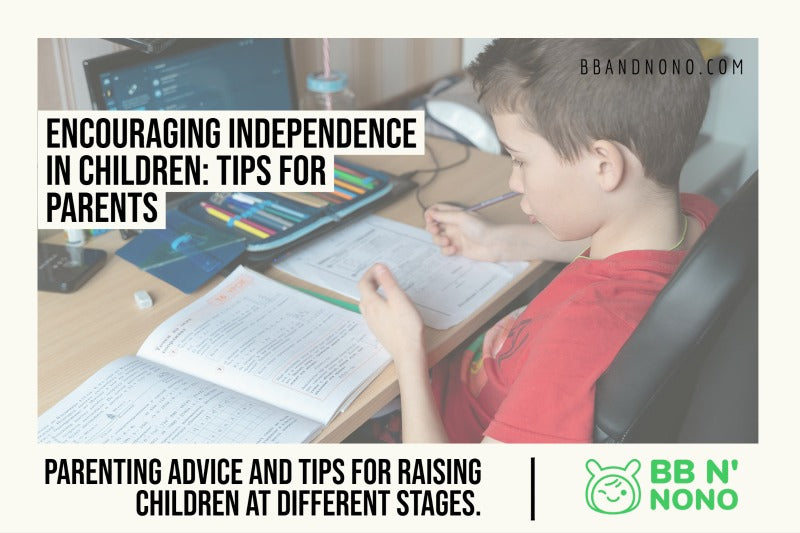Encouraging Independence in Children: Tips for Parents

As parents, one of our primary goals is to raise independent and confident children who can navigate the world with self-assurance. Encouraging independence in children not only helps them develop essential life skills but also fosters a sense of responsibility and self-reliance. In this article, we'll explore the importance of nurturing independence in children and provide practical tips for parents to support their child's journey towards autonomy.
-
Foster a Safe and Supportive Environment: Creating a safe and supportive environment is crucial for encouraging independence in children. Allow your child to take risks and make choices within reasonable boundaries. Provide age-appropriate opportunities for them to explore their surroundings, try new activities, and solve problems on their own. Be there to offer guidance and support when needed, but also let them learn from their mistakes and develop resilience.
-
Assign Age-Appropriate Chores: Assigning age-appropriate chores not only helps children develop practical skills but also instills a sense of responsibility and independence. Start with simple tasks like putting away toys or setting the table and gradually increase the level of responsibility as they grow older. By participating in household chores, children learn important life skills, gain a sense of contribution, and develop a strong work ethic.
-
Encourage Decision-Making: Allowing children to make decisions empowers them and nurtures their decision-making abilities. Start with small choices such as selecting their outfits or deciding which book to read. As they grow older, involve them in decisions that impact the family, such as planning outings or determining household rules. This encourages critical thinking, problem-solving, and a sense of ownership over their choices.
-
Teach Problem-Solving Skills: Teaching children problem-solving skills equips them with the tools to tackle challenges independently. Encourage them to identify the problem, brainstorm possible solutions, and evaluate the pros and cons of each option. Guide them through the process without providing immediate solutions, allowing them to develop resilience and confidence in their ability to overcome obstacles.
-
Promote Self-Help Skills: Self-help skills are essential for independence. Encourage your child to dress themselves, tie their shoelaces, and practice personal hygiene routines like brushing their teeth and washing their hands. These tasks foster independence and boost their self-confidence as they learn to take care of their own needs.
-
Provide Age-Appropriate Freedom: Granting age-appropriate freedom is vital for fostering independence. Allow your child to explore their environment within safe boundaries. Let them play independently, make choices about their activities, and interact with their peers. This freedom helps them develop social skills, assertiveness, and a sense of autonomy.
-
Celebrate Efforts and Progress: Recognize and celebrate your child's efforts and progress towards independence. Provide praise and positive reinforcement when they demonstrate responsible behavior, problem-solving skills, or successfully complete tasks on their own. This encouragement reinforces their independence and motivates them to take on new challenges.
-
Be a Supportive Guide: As your child develops independence, be a supportive guide along their journey. Offer guidance, encouragement, and reassurance when they face obstacles. Be available to answer questions, provide feedback, and celebrate their achievements. This support creates a sense of security and trust, enabling them to take risks and explore their independence with confidence.
Encouraging independence in children is a transformative gift that equips them with the skills and confidence needed to navigate the world. By fostering a safe and supportive environment, assigning age-appropriate chores, encouraging decision-making, teaching problem-solving skills, promoting self-help skills, providing age-appropriate freedom, celebrating efforts and progress, and being a supportive guide, parents can nurture their child's independence and set them on a path to a self-reliant


